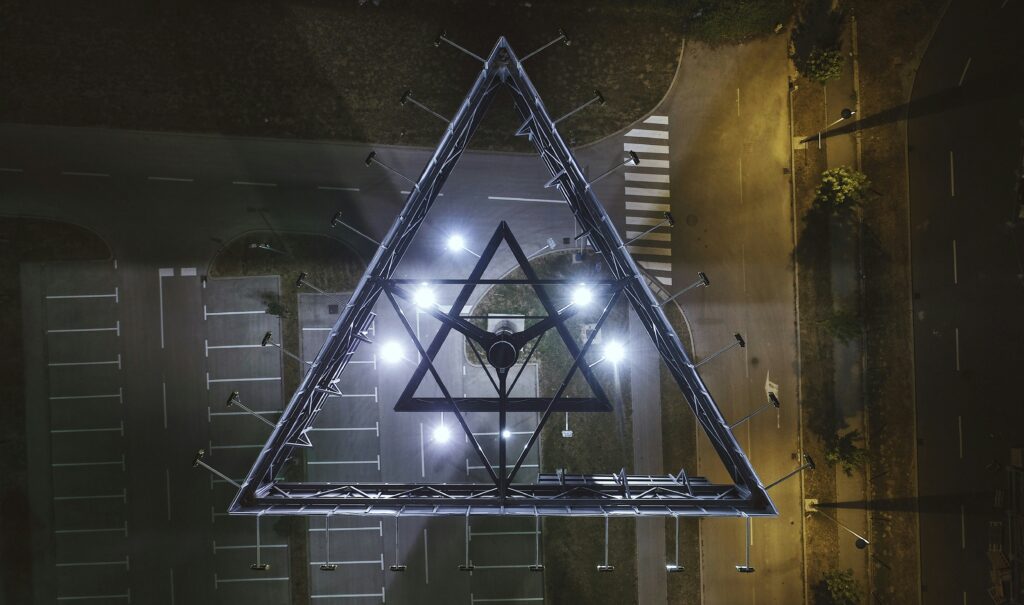
🔒 Disclaimer
This article is intended solely for educational and analytical purposes. It does not endorse or promote any conspiracy theories or unsupervised engagement with esoteric practices. The Illuminati is widely recognized as a debunked conspiracy theory with no credible evidence supporting its current existence or global influence. Indian esoteric traditions, often mislabeled as “occult,” are complex spiritual paths requiring rigorous study and ethical guidance. They are not connected to global conspiracy theories like the Illuminati. Attempting to replicate any rituals or beliefs described here, or engaging in belief systems that promote paranoia or hatred, may result in severe psychological, spiritual, or even physical harm.
🧩 Introduction: The Allure of Hidden Powers
In an age dominated by information overload and digital echo chambers, the human psyche often gravitates toward narratives that offer a sense of control or deeper understanding. Conspiracy theories, such as those surrounding the Illuminati, and the mystique of Indian esoteric traditions both tap into this desire. While one is rooted in modern myth-making, the other is anchored in centuries-old spiritual practices. This article aims to dissect these concepts, highlighting their origins, differences, and the dangers of conflating the two.
🛠️ Illuminati: From Historical Society to Modern Myth
Historical Origins
The term “Illuminati” originally referred to the Bavarian Illuminati, a secret society founded in 1776 in Ingolstadt, Germany. Established by Adam Weishaupt, the group’s aim was to promote Enlightenment ideals and rational thought. However, it was short-lived, disbanded by the late 1780s due to political pressure and internal conflicts.
Evolution into Conspiracy Theory
Despite its brief existence, the Illuminati became a focal point in various conspiracy theories, especially from the 20th century onward. These theories posit that the Illuminati continues to operate covertly, manipulating global events and institutions. However, scholarly analyses have consistently debunked these claims, highlighting the lack of credible evidence and the logical fallacies inherent in such expansive conspiracies. (iep.utm.edu)
🧘♀️ Indian Esoteric Traditions: Depth Beyond the Surface
Understanding the Traditions
Indian esoteric traditions encompass a range of spiritual practices aimed at personal transformation and enlightenment. These include Tantra, Yoga, and various meditation techniques. Contrary to popular misconceptions, these practices are not about wielding supernatural powers but about achieving inner balance and self-realization.
Misrepresentation in Popular Culture
Unfortunately, elements of these traditions have been sensationalized in media and misrepresented in conspiracy narratives. Terms like “hidden powers” or “forbidden knowledge” are often stripped of their spiritual context, leading to misunderstandings and, in some cases, dangerous practices undertaken without proper guidance.
⛓️ The Dangers of Conflation
Superficial Similarities
At a glance, both Illuminati conspiracy theories and Indian esoteric traditions involve elements of secrecy and specialized knowledge. This superficial similarity has led some to draw parallels between the two, suggesting a hidden global network of power rooted in ancient practices.
Fundamental Differences
However, this conflation is misleading. Illuminati conspiracy theories are modern constructs lacking empirical support, often serving as vehicles for anti-establishment sentiments. In contrast, Indian esoteric traditions are well-documented spiritual paths with rich philosophical underpinnings. Equating the two not only distorts the essence of these traditions but also disrespects their cultural and spiritual significance.
⚠️ Ethical Considerations and Reader Safety
Engaging with esoteric practices without proper understanding and guidance can lead to psychological distress and spiritual imbalance. It’s crucial to approach such traditions with respect, seeking knowledge from credible sources and qualified practitioners. Moreover, indulging in unfounded conspiracy theories can foster paranoia, social alienation, and hinder critical thinking.
📚 References & Further Reading
- Keeley, B. L. (1999). Of Conspiracy Theories. The Journal of Philosophy, 96(3), 109–126.
- Hepfer, K. (2015). Conspiracy Theories: Philosophical Challenges. De Gruyter.
- Feuerstein, G. (1998). Tantra: The Path of Ecstasy. Shambhala Publications.
- White, D. G. (2000). Tantra in Practice. Princeton University Press.
👤 About the Author
Sandeep is a researcher and writer exploring religion, culture, and media narratives. He focuses on how ancient traditions are interpreted in modern contexts and the societal impact of conspiracy thinking. He does not endorse any conspiracy theories or promote unsupervised occult practices.
By critically examining the origins and implications of both Illuminati conspiracy theories and Indian esoteric traditions, we can foster a more informed and respectful understanding of these complex subjects.








